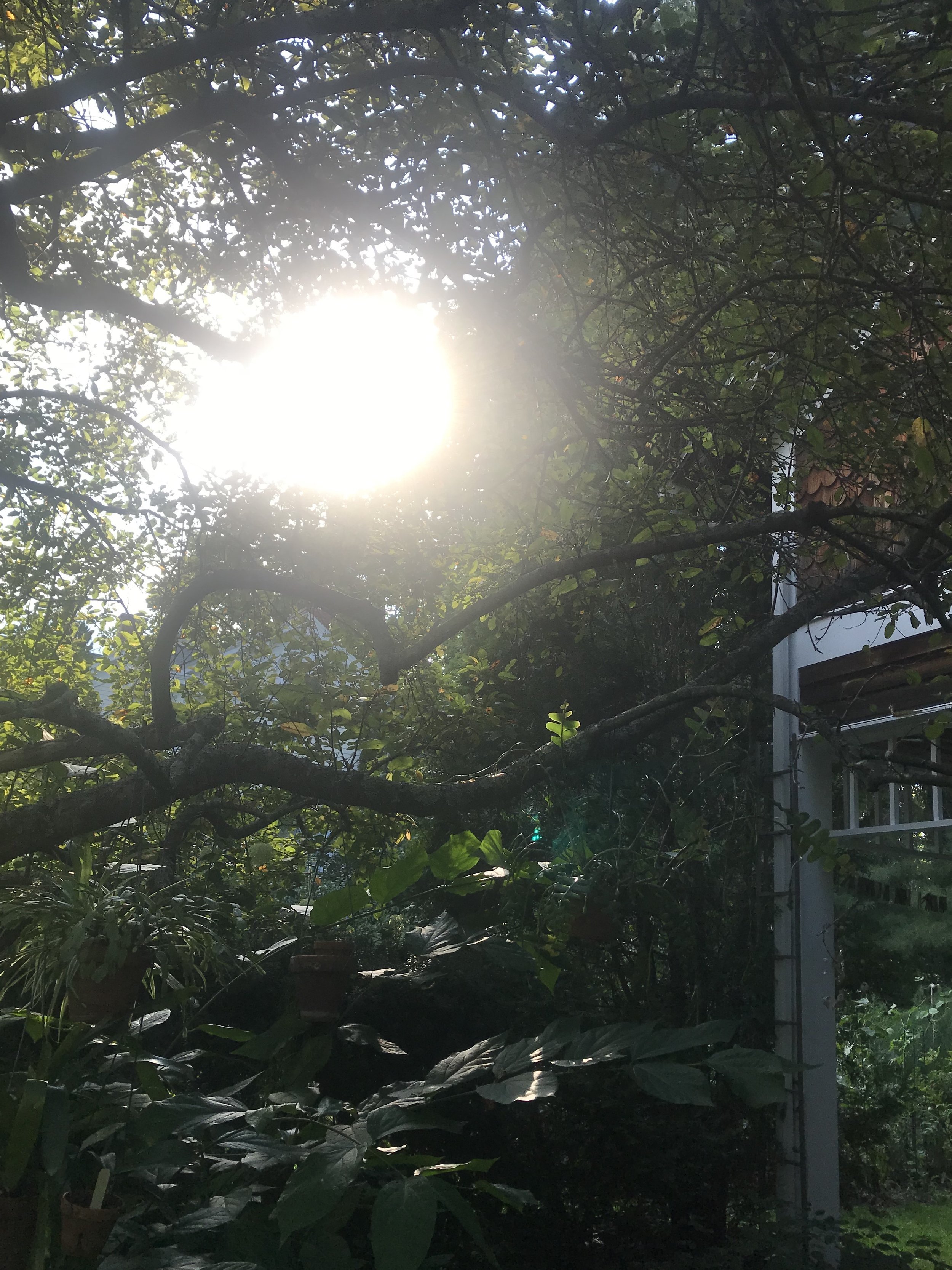
ICE (2023)
In a careful examination of personal and collective histories, David Keplinger’s Ice indexes the findings from memory’s slow melt.
"From Dante to Blake to Emily Dickinson, the poems in Keplinger's latest book summon literary history (and geological history, too) in an effort to understand modern life."
—New York Times Book Review
“Ice… shifts gracefully from geological epochs to intimate moments. In the opening poem, locals are searching for a mammoth tusk. Later, we see a grandmother mending socks. Glaciers collapse in the warming climate, while far away a mother reads Emily Dickinson on her deathbed. What does it mean to live in these latter days when ‘we run false hope / as if it were a red light’?
—Ron Charles, The Washington Post Book World - Book Club
“Reading Ice is like crossing a threshold into timelessness as we navigate the intersections of history, science, literature, and spirituality. Keplinger’s masterful craft connects past and presence while deftly underlining the relationship between loss and astonishment. It’s like the poet says when looking at two horses who seem to be embracing each other in a field: ‘I want to love/the world like this.’ Keplinger has written a timely, noteworthy collection. A must read.”
—Leonora Simonovis, EcoTheo Collective
ICE
“The severed head of the world’s first full-sized Pleistocene wolf was unearthed in the Abyisky district in the north of Yakutia…on the shore of the Tirekhtyakh River, tributary of Indigirka.”
Siberian Times, June 26 2020
What I heard is that the locals searching
for the mammoth tusk along the Tirekhtyakh
discovered instead the head of a wolf
that had been frozen over forty thousand
years ago. The tongue hung from its mouth.
The teeth were terrible but mostly there.
The head alone was the size of a child.
When the local people found the full-grown
wolf head on the Tirekhtyakh and pulled it
like a molar from the sopping gummy earth
and hoisted it, the hardened points of fur
cut through the gloves into their hands.
On each side of the face the eye, sealed shut.
When we read about the story of it together,
those were the days when we would stay up
all winter in the house writing poems in our
icy rooms. You wanted a child. I don’t know
where that question got buried in my body.
The wolf head lived on top of its body
in the valley on the river and we cannot know
how the head got severed from the heart.
The body may have dropped and collapsed
into grass roots and larches. Or it may have
been cut from the wolf. But the head stayed
intact, as it still is, as it feels that way now,
the heft and the size of a child. Cocked sideways
in its question on the shoulders of the world.
MORE PRAISE FOR ICE
“Ice is alchemical, combining seemingly disparate elements to produce something new and unexpected. This is true of individual poems and of the collection as a whole, thanks to Keplinger’s curation: here are exhumed animals from the Pleistocene, here is a tank-sized facsimile of a beach, here is Emily Dickinson’s piano. Emergent properties arise from each of these pieces and from the book itself, representing more than the sum of the poems’ parts. What the reader brings to the experience is, of course, the final ingredient; but Keplinger’s skill provides both the spark and the space to facilitate transformation.”
—Rebecca Patrascu, Adroit Journal
“Keplinger’s Ice travels across time and space, both evoking the history of life on earth and focusing on personal losses, as in a portrait of a dying mother reading Dickinson– ‘My mother coughed again. / Little dashes in her sentences.’ There is an arresting intimacy to the icy breadth of this collection, a sense of something unvisited before.”
—Rebecca Morgan Frank, Literary Hub
Early Praise for Ice:
"Keep watch for David Keplinger. His poems, with their exquisite immediacy and valor, confront us with what we need to see: our intimate part in the fate of our planet. Yet even in the anguish, we experience the beauty of it, and feel a kind of redemption in the truth telling. You will want all your friends to read this book."
—Joanna Macy, World As Lover, World As Self
“David Keplinger’s Ice is Seamus Heaney’s North for the 21st century, which is to say that it knows history’s reverberating circle, how we learn about our contemporary selves from what, of itself, Earth chooses to exhume. From ice: a body. From ice: evidence, or parable, or prayer. In these tender, wondrous poems, Keplinger excavates Earth’s frozen archives of Anthropocene violence, preserved in the body, to remind us of the heft and joy of living.”
—Jenny Molberg, The Court of No Record
“Keplinger’s eighth book of poetry reveals once again how he keeps returning to beginner’s mind to refresh his vision and his voice. These poems are acts of love that come from and return to the silence that has seen it all and embraced all of it. There is no greater love than that. As I finished the book, I found myself deeply at home in this poet’s company. I believe that many others will find the same.”
—Parker J. Palmer, A Hidden Wholeness
“Few books move me as wholly and profoundly as David Keplinger’s do. Aching and revelatory, Ice, his latest poetry collection, speaks to that part of us that wants to preserve our tenderness for this world and those in it. As the first poem considers the prehistoric wolf unearthed by the thaw of climate change, it asks ‘how the head got severed from the heart.’ As we turn the pages, the question invites us to examine our own history, our purpose, our legacy. The hurt, the poems reveal, is where we might come together to love the world and each other.”
—Blas Falconer, Rara Avis



